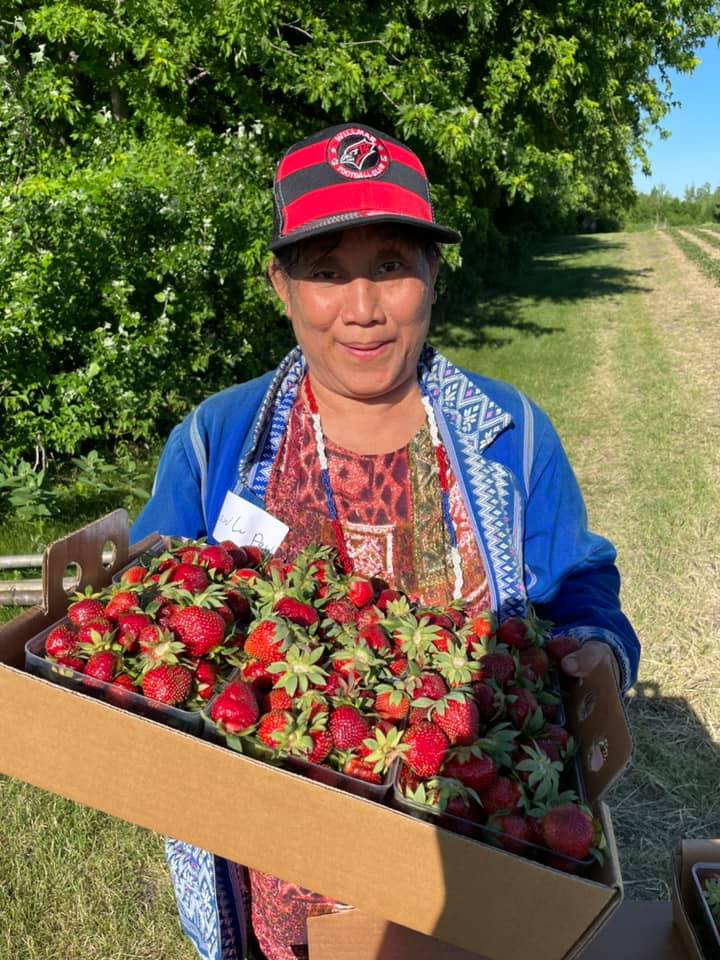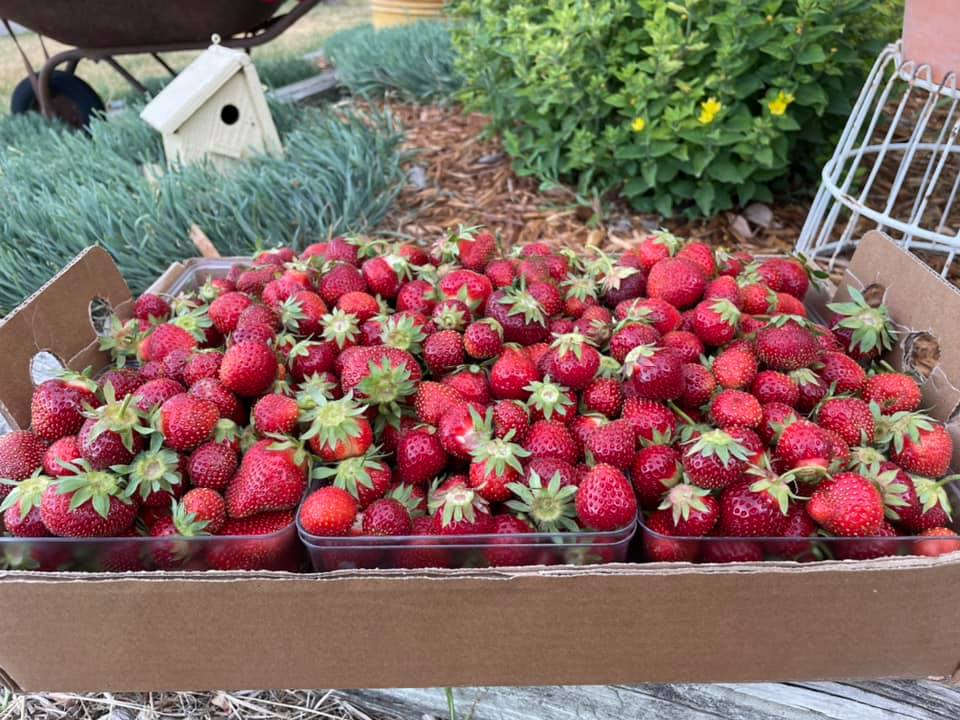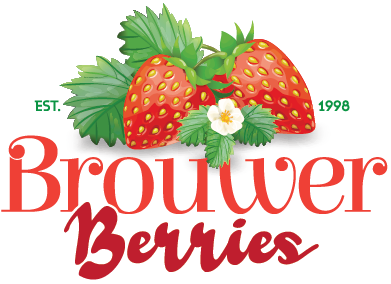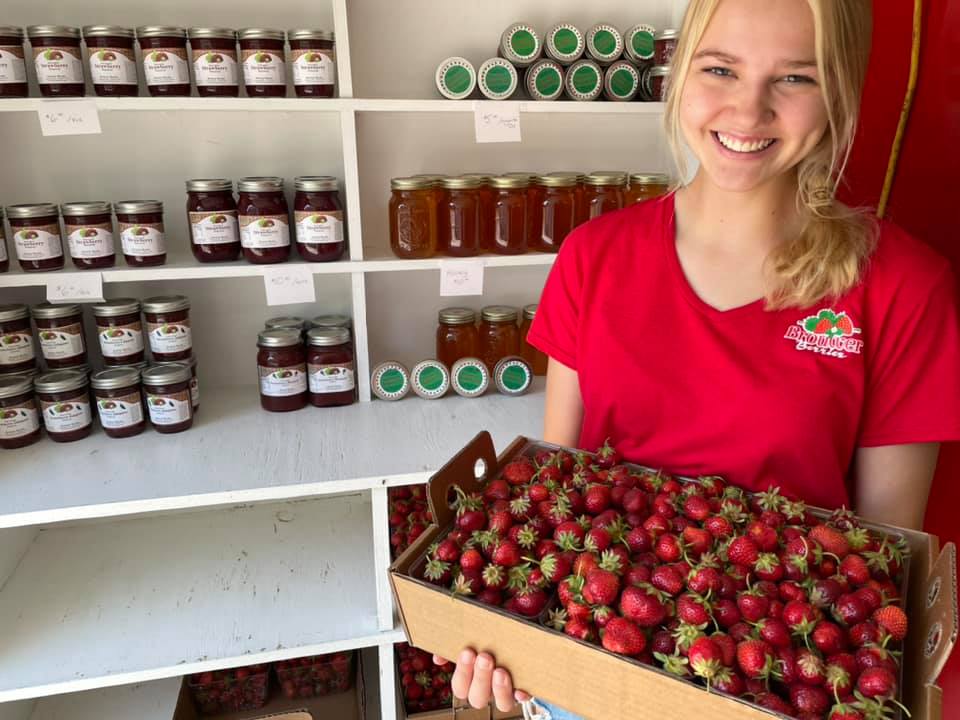This was the start of the most miserable harvest season I’ve experienced in 22 years. Each day, I had a few employees start in rows that I thought would produce, while I’d dash inside to check my messages. After 30 minutes, I’d go check on the employees, and they’d already be at the end of the row, kind of wandering around, hoping to find a few strawberries.
We pay employees by the pound, and this wasn’t worth their time. I realized I’d have to pay them more per pound if I wanted them to keep trying, and be less fussy about the strawberries they put in the quarts. Rather than sacrifice quality for my customers, I decided to sort through every berry that was picked. As the employees realized I was allowing them to pick bad quality berries as part of their paid poundage, their quality tanked further. My daughters and I rapidly worked, sorting the berries, and then stemming the discards for our own use. I jacked my price up a dollar extra per pound, to cover the additional employee hours.

Each harvest day, I counted in my head “X” amount of dollars. It’s not nothing.” Compared to other years, it was fractional, but fractional is better than nothing.
The one blessing to come out of this was my appreciation for on-line ordering. Previously, people have placed orders via email or phone, and I’d have to keep track of inventory manually. This year, after counting available flats, I’d post inventory in my Square online account, and customers would race to get their credit card information entered before the inventory was back down to zero. This took only about 15 minutes most days. Once ordered, customers had the rest of the day to pick up their berries. It was very efficient.”

The emotional toll was huge. My husband mentally wrote off the crop, and left for his construction projects each day, leaving me to muster the energy to figure things out. Each day, I wandered the field, hoping for a resurgence of berries so that I could call in U-pickers. Each day, I was crushed further.
There was so much that was hard. Pivoting every hour as we adjusted our expectations downward. Feeling my crushing disappointment at the financial loss, thanking customers for their kindness, turning away loyal customers who drove on our yard, waiting for rain that never came, apologizing to people who told me how much we’d disappointed them.
Thankfully, it’s done. It’s behind us. Thankfully also, we had a lot of risk management strategies in place, so that this catastrophic crop loss didn’t cause us to go bankrupt, or go into foreclosure. Farming is a gamble, and if we didn’t hope for that bumper crop, we’d get out of the game and run for our lives!
I hope and pray that if you are a farmer who read this farmer series, that you have learned something about how to plan and prepare for the down side of farming.

Thank-you for reading this blog series! Will you help me finish up??? Your responses are needed for the grant report to the Department of Agriculture! If you’ve been touched in any way by what you read in this farmer blog series, please email sarah@brouwerberries.com. Thank-you!!!! Sarah Brouwer; Brouwer Berries


Sarah, Thank you for sharing your journey with us. As I am a customer of yours and was raised on a grain farm and inherited said farm, I have been associated with agriculture off and on my whole life. I could write a book but will keep it short and focus on two points. 1. People not associated with agriculture do not understand the part Mother Nature plays in the equation. You can talk theory all you want but She is a huge unknown unpredictable variable as your stories show. However agriculture deals with this every year, not once in 5,10 or 100 years. So how do you plan? 2. People also do not understand the input cost of agriculture and the insurance coverage available that isn’t a real option. Even in large options you can’t buy coverage to cover 100% of your loss.
However, the one point I think people understand NOW if they are a small business owner or self employed is diversification especially after 2020 pandemic. A lesson we should all be putting into practice as you pointed out in your articles, diversity and savings are two ways to protect ourselves. However as we see everyday in this world, nothing is guaranteed!! God bless and stay strong!
Sarah-I read through your interesting blog, and have a better understanding of what your strawberry operation is all about. I have always been impressed with your and Dan’s friendly attitude and all the hard work your whole family puts into the Brouwer Berries farm. I sincerely hope and pray that the weather will be more favorable for growing strawberries this year, and I will be back to pick many more pounds of your wonderful produce (and pull a few weeds if there are any😉). Ruby
Sarah — Thank you for the blog. I have learned so much! We have enjoyed your farm for many years and our grandchildren have wonderful memories of the farm animals and the wagon rides and, of course, the strawberries. I also remember and appreciate your encouragement and willingness to share your story when we were working to establish a food coop in our community. Along with our grandchildren we look forward to your happy smiles next summer when we come out to pick strawberries again. Thank you all for hanging in there!
Sarah, Thank you for educating us on your strawberry farming. I felt bad that u-pick wasn’t
an option this year and I read your blogs about the weather situation which destroyed so may of your fields. I hope and will pray that your fields will be thick with red berries next year so we can all return to pick. Looking forward to your future blogs about the lamb business as well. Prayers for all.
Sarah,
I am thankful to have had the amazing strawberries grown on your farm. It feels like a precious gift when I can share them with my children and grandchildren.
I hope your efforts result in many successful crops in the coming years. If anyone has doubts that it’s not all in our control, your story should educate them. As I used to tell the mothers I cared for, “Having children is God’s way of teaching us we are not in charge.” I think I’ll need to modify that to “Being a farmer or having children are two ways God teaches us we are not in charge!”
Farmers like you, who use the tools we learn from science to add the experience of many generations and are dedicated to the success of farming into the future, will lead us to resilient farms that can sustain our farming families and agricultural industry. We need people with your talents, knowledge and dedication to the sacred work of farming to create the innovations that will result in successfully feeding our families in our ever-changing world. The discoveries you make in sustainable farming at a family farm level, may be part of the answers we will need for Midwest agriculture to successfully adapt to the future.
You have my heartfelt thanks for all you do.